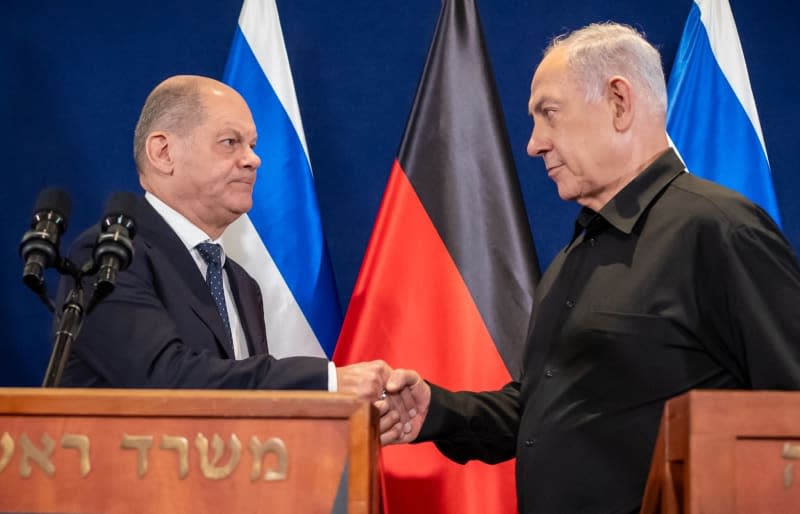Germany's Scholz phones Netanyahu to speak about hostages, ceasefire

- Oops!Something went wrong.Please try again later.
- Oops!Something went wrong.Please try again later.
German Chancellor Olaf Scholz, in yet another discussion with Israeli Prime Minister Benjamin Netanyahu, spoke on the phone about efforts to release all the hostages and obtain a ceasefire.
The two also spoke about further improvements to humanitarian aid for the people in the Gaza, German deputy spokesman Wolfgang Büchner said on Thursday. Additional details were not disclosed.
As part of mediation efforts in Cairo, the Palestinian Islamist Hamas, which abducted some 250 people from Israel on October 7, was presented with a proposal for a ceasefire in return for the release of hostages. A response is still pending.
Some of the hostages were released in an exchange in November but it is unclear how many of the remaining in captivity are still alive.
The Islamist organization has so far insisted on an end to the war and Israeli troop pullout as a basis for a hostage deal. Israel rejects this.
The Israeli government has said it would launch its controversial offensive in Rafah in the south on the border with Egypt if no agreement is reached.
The Gaza war was triggered by the unprecedented massacre of more than 1,200 people killed by Hamas terrorists and other groups in Israel on October 7.
Israel, which responded with massive airstrikes and a ground offensive, has come under heavy international criticism given the high number of civilian casualties and the catastrophic situation in the Gaza.
According to Palestinian authorities last week, more than 34,000 people have died since Israel launched the military operation.

